The Ultimate Guide To Influencer Marketing For Musicians for 2023

How does one define the ultimate guide to influencer marketing? To level the playing field in the music business today is more of an architectural development than anything. It is simpler than ever to produce an album or a single in your bedroom, submit it to the internet, and encourage interaction on social media.
It also enables musicians to use influencer marketing. Not only the internet, but all technology is to blame for this.
Naturally, the internet allows influencers to advertise music to millions of prospective followers worldwide through their social media platforms.
The disadvantage of the simplicity of recording and sharing music is that everyone will be able to do it. How can you make your song stand out from all the others and be heard in the crowd?
That is indeed a difficulty, but there are tools available to assist you. For musicians, one such method is Influencer Marketing.
Does it seem interesting to you? So, consider this your formal invitation to join the influencer marketing renaissance.
All aboard!
If you want to take a look at our previous guide and see how it has evolved click here !
In today’s digital age, musicians have more opportunities than ever to reach a wider audience and connect with their fans. One of the most effective strategies for achieving this is influencer marketing. By partnering with influential individuals in their niche, musicians can amplify their brand, increase their reach, and engage with a targeted audience. This comprehensive guide will walk you through the key steps and strategies for successfully utilizing influencer marketing in 2023.
1. Introduction to Influencer Marketing
Influencer marketing refers to the practice of leveraging the popularity and influence of individuals on social media to promote products or services. For musicians, this means collaborating with influencers who have a substantial following and influence in the music industry or related niches. Influencer marketing offers musicians a unique opportunity to tap into the engaged audience of these influencers and gain exposure to new fans.
2. Identifying the Right Influencers
To get started with influencer marketing, it’s crucial to identify the right influencers who align with your music and target audience. Start by understanding your target audience and the platforms they frequent. Research and find influencers who have a significant presence in these platforms and cater to a similar demographic. Look for influencers who have high engagement rates, as this indicates an active and responsive audience.
Follower Count:
- This metric indicates the number of people who follow the influencer’s social media account(s). A higher follower count generally suggests a larger potential reach for your music.
Reach:
- Reach refers to the estimated number of people who see an influencer’s content. It takes into account factors like the influencer’s follower count, the platforms they use, and the visibility of their posts.
Engagement Rate:
- Engagement rate measures how actively the influencer’s audience interacts with their content. It includes metrics such as likes, comments, shares, and saves. A higher engagement rate typically indicates a more engaged and responsive audience.
3. Building Relationships with Influencers
Once you’ve identified potential influencers, it’s essential to approach them professionally and build strong relationships. Personalize your outreach by mentioning specific aspects you admire about their work. Offer value to the influencer, such as exclusive content, concert tickets, or a chance to collaborate. Building a mutually beneficial partnership will increase the chances of influencers being interested in promoting your music.
4. Crafting an Effective Influencer Marketing Strategy
Before embarking on influencer marketing campaigns, it’s vital to develop a comprehensive strategy. Set clear goals and objectives for your campaigns, such as increasing brand awareness, boosting album sales, or driving traffic to your website. Define your target audience precisely, as this will help you tailor your content and choose the most suitable influencers. Create a content plan that outlines the types of collaborations you want to pursue, whether it’s sponsored posts, product placements, or live performances. Determine your budget for influencer partnerships, considering factors such as the influencer’s reach and engagement, as well as the scale of the campaign.
5. Collaborating with Influencers
When collaborating with influencers, it’s crucial to negotiate terms and agreements that benefit both parties.
- Clearly define the scope of the collaboration, including the number of posts, the content format, and the timeline.
- Provide influencers with creative freedom to showcase your music in a way that resonates with their audience.
- Incorporate influencers’ content into your marketing campaigns to amplify their reach and engage with their followers.
6. Leveraging Social Media Platforms
To maximize the impact of influencer marketing, choose the right social media platforms for promotion. Consider the demographics and preferences of your target audience. Optimize your social media profiles and content to reflect your brand and appeal to potential fans. Engage with the audience and the followers of the influencers you collaborate with by responding to comments, running contests or giveaways, and actively participating in conversations.
To read more about social media predictions for 2023 check out our new article !
Key Demographics to consider
- Age: Determine the age range of your target audience. Are you targeting teenagers, young adults, or a specific age group? This information helps you select influencers and platforms that cater to that particular age range.
- Gender: Understand the gender distribution within your target audience. Depending on the genre and style of your music, you may want to focus on specific genders or ensure that your marketing efforts are inclusive to all genders.
- Location: Identify the geographic locations where your target audience is concentrated. This information helps you choose influencers who have a strong presence in those regions or consider local marketing strategies specific to those locations.
- Interests: Explore the interests and hobbies of your target audience. Are they fans of a particular music genre, fashion, lifestyle, or other related topics? This knowledge can help you align your influencer partnerships and content with the interests of your audience.
- Online Behavior: Consider the preferred social media platforms and online behavior of your target audience. Do they spend more time on Instagram, TikTok, YouTube, or other platforms? Understanding their online behavior allows you to focus your influencer marketing efforts on the platforms where your audience is most active.
- Consumption Habits: Determine how your target audience consumes music and engages with content. Do they stream music on platforms like Spotify or Apple Music? Do they actively search for new music on YouTube or rely on social media recommendations? This information helps you optimize your influencer marketing strategy and choose the appropriate channels to promote your music.
7. Measuring and Analyzing Influencer Marketing Campaigns
To evaluate the effectiveness of your influencer marketing campaigns, track key performance metrics. Monitor the reach and engagement of influencer posts, such as likes, comments, and shares. Evaluate the impact of influencer collaborations on brand awareness and reach, as well as on website traffic and conversions. Analyze conversion rates and sales attributed to influencer marketing efforts to assess the return on investment.
- Engagement: Evaluate the engagement metrics of influencer posts, including likes, comments, shares, and saves. These metrics show how actively the audience interacted with the content. Higher engagement levels indicate a more involved and responsive audience.
- Brand Awareness: Assess the impact of influencer collaborations on brand awareness. This can be measured through brand mentions, hashtag usage, or tracking increases in brand searches or social media mentions related to your music.
- Website Traffic: Monitor the website traffic generated from influencer marketing efforts. Track the number of visitors, session duration, page views, and bounce rate to understand the level of interest and engagement with your music among the influencer’s audience.
- Conversions: Analyze the conversion metrics associated with your influencer campaigns. This includes tracking the number of leads, downloads, purchases, or any desired actions taken by the audience as a result of the influencer’s promotion.
- Return on Investment (ROI): Assess the financial impact of influencer marketing by measuring the ROI. Calculate the revenue generated or costs saved through influencer collaborations and compare it to the investment made. This will help you determine the effectiveness and profitability of your influencer marketing campaigns.
8. Avoiding Common Influencer Marketing Pitfalls
While influencer marketing can be highly beneficial, it’s important to be aware of potential pitfalls. Ensure transparency and disclosure by clearly stating sponsored content and partnerships. Be cautious of fake influencers and inflated follower counts, as these can harm your brand’s reputation. Maintain authenticity and credibility by collaborating with influencers who genuinely align with your music and values.
9. Future Trends in Influencer Marketing for Musicians
As technology and social media continue to evolve, it’s crucial to stay updated on emerging trends in influencer marketing. Keep an eye on emerging social media platforms that might provide new opportunities to connect with fans. Consider the growing influence of micro-influencers, who often have highly engaged audiences within specific niches. Embrace the rise of video content and live streaming as powerful tools for connecting with fans. Explore the potential of leveraging virtual and augmented reality experiences to create immersive music-related content.
10. Conclusion
Influencer marketing has become an integral part of the musician’s toolkit in 2023. By leveraging the influence and reach of relevant influencers, musicians can amplify their brand, expand their fanbase, and ultimately achieve their goals. Remember to carefully identify the right influencers, build strong relationships, and craft an effective strategy. Collaborate with influencers authentically, leverage social media platforms, and measure the impact of your campaigns. Stay updated on future trends to remain ahead in the dynamic world of influencer marketing.
FAQs (Frequently Asked Questions)
1. How do I find the right influencers for my music?
Finding the right influencers involves understanding your target audience and researching influencers who cater to a similar demographic. Look for influencers with high engagement rates and a genuine connection to the music industry.
2. How can I approach influencers professionally?
When approaching influencers, personalize your outreach and mention specific aspects you admire about their work. Offer value in the collaboration and show genuine interest in building a mutually beneficial partnership.
3. How do I measure the success of influencer marketing campaigns?
Measure the success of your influencer marketing campaigns by tracking key metrics such as reach,engagement, website traffic, and conversions. Monitor the impact on brand awareness and assess the return on investment to determine the effectiveness of your campaigns.
4. What should I look out for to avoid fake influencers?
To avoid fake influencers, pay attention to engagement rates, follower growth patterns, and the quality of their interactions. Look for genuine and consistent engagement with their audience, rather than inflated follower counts.
5. How can I leverage emerging trends in influencer marketing?
Stay informed about emerging social media platforms and trends to identify new opportunities for connecting with fans. Embrace the power of micro-influencers, video content, and live streaming. Explore the potential of virtual and augmented reality to create immersive music experiences.
6. How important is transparency and disclosure in influencer marketing?
Transparency and disclosure are crucial in influencer marketing to maintain trust and credibility with your audience. Clearly state when content is sponsored or in partnership with an influencer to ensure transparency and compliance with advertising regulations.
Subscribe To Our Music Marketing Newsletter!
News about music marketing strategies to the music business and beyond.
Delivered to your inbox once a week.




